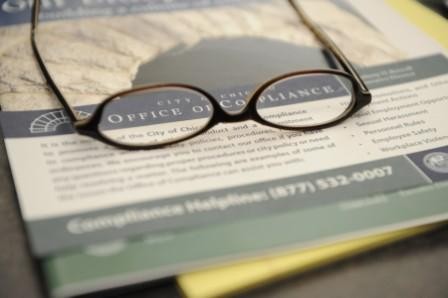
UPDATED: Friday, February 20, 12:23pm.
In November of 2014, the Superintendent of Financial Services adopted 23 NYCRR 1, a regulation to reform debt collection practices by members of the debt industry. The new rules take effect on March 3, 2015.
In response to requests for clarification submitted by a range of industry groups, the New York State Department of Financial Services (the “Department”) has posted answers to a number of frequently asked questions.
The clarification was widely applauded by the ARM industry.
Robert Föehl, vice president and general counsel for ACA International, said, “ACA is appreciative of the department’s willingness to provide this clarification. We hope it will assist ACA members and industry participants to better understand their compliance obligations.”
Stephanie Eidelman, CEO of insideARM.com and member of the Executive Steering Committee of the Consumer Relations Consortium (CRC), noted that the CRC had submitted its own set of questions to DFS for clarification. “Fortunately, some of the issues we asked about were covered in the FAQ release,” said Eidelman. “There is still far more clarification needed with these new rules, however.”
To help with that clarification, DBA International is hosting a symposium in New York City next Thursday that will specifically address the new rules. DFS Executive Deputy Superintendent Joy Feigenbaum is slated to give a presentation on the new rules and sit on a panel with other New York regulators for a Q&A session for attendees. insideARM.com will be attending the event next week, so be sure to stay on the lookout for our report.
At present, the following 16 questions appear with answers; however, the site will no doubt be updated with other questions/answers:
- Does 23 NYCRR 1 apply to the collection of debts by original creditors?
- Is a debt originated by a seller of a good or service sold directly to the consumer subject to 23 NYCRR 1?
- Does 23 NYCRR 1 apply to debts that have not been charged-off?
- Does 23 NYCRR 1 apply to debt servicers, including companies that service student loans, home equity loans or mortgages?
- Does 23 NYCRR 1 apply to New York based debt collectors collecting debts from persons who reside outside of New York?
- By limiting the requirement in 23 NYCRR 1.5 to payment arrangements reached “pursuant to Section 1.5 of this Part” does this section only require debt collectors to provide written confirmation of payment arrangements entered into after the enactment of the DFS rules?
- Do debt collectors need to provide a full copy of the original payment agreement and copies of all payment statements in order to comply with the requirements of 23 NYCRR 1.4(c)(4)?
- What happens if the debt collector cannot substantiate the debt within 60 days but does so thereafter?
- Would providing consumers a monthly account statement fulfill the requirements of 23 NYCRR 1.5(b)?
- After a legal action has commenced, does a collection attorney need to comply with rules such as 23 NYCRR 1.5(b), which requires sending quarterly statements during scheduled payments?
- Does 23 NYCRR 1 apply to collection of a money judgment?
- The Department and the New York City Department of Consumer Affairs (“NYCDCA”) both require disclosures concerning the statute of limitations. However, the notices differ in some respects. If the debt collector is subject to the NYCDCA rules, are both disclosures required?
- The Department and the NYCDCA rules both specify information to be sent to a consumer within five days of the initial communication with a consumer in connection with the collection of any debt. If the debt collector is subject to the NYCDCA rules, are both disclosures required when collecting a debt?
- If the debt collector provides the notice required in 23 NYCRR 1.3 before accepting payment on a debt where the statute of limitations has expired, must the debt collector provide this notice in every subsequent communication or before accepting every subsequent payment?
- If a debt collector treats a dispute, either oral or written, as a request for substantiation, must the debt collector inform the consumer of the method by which the consumer may request substantiation?
- If a debt collector has provided a consumer with substantiation of an alleged debt, does the debt collector need to provide information about how to request substantiation after any subsequent disputes about the debt?
NY State Dept of Financial Services Releases Debt Collection FAQ
http://www.insidearm.com/daily/debt-collection-news/ny-state-dept-of-financial-services-releases-debt-collection-faq/
http://www.insidearm.com/feed
insideARM












